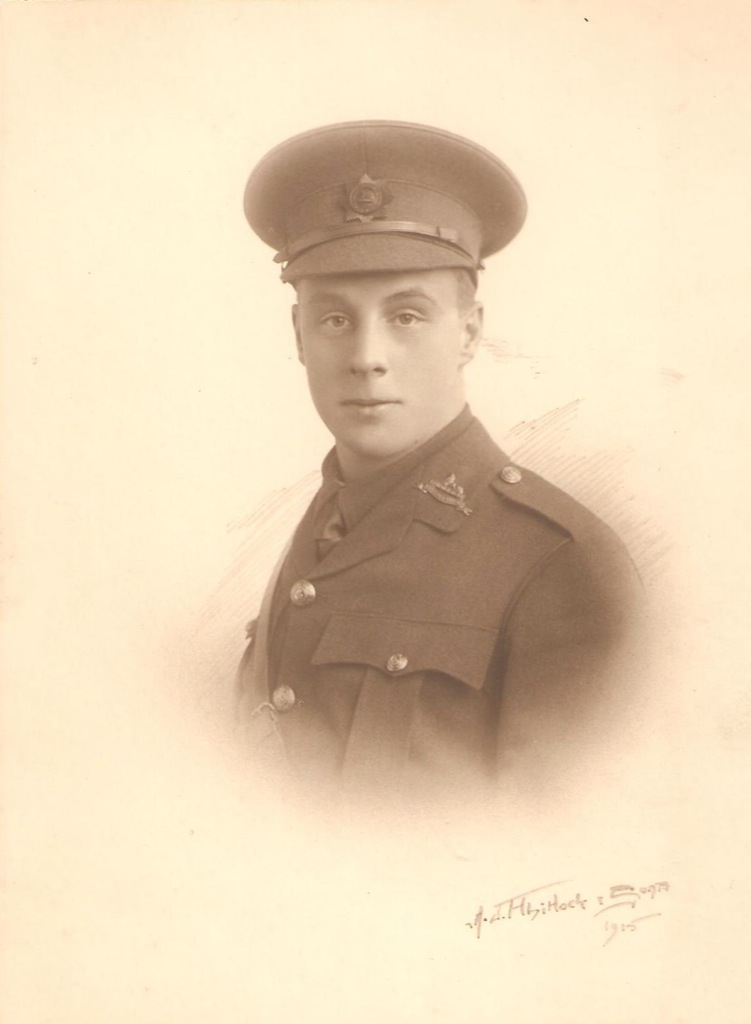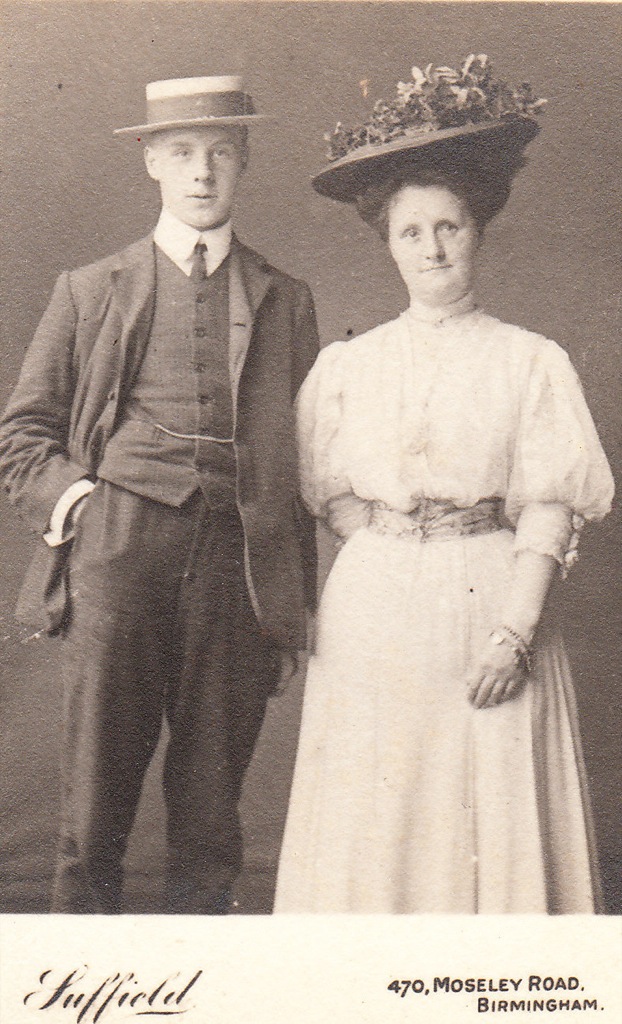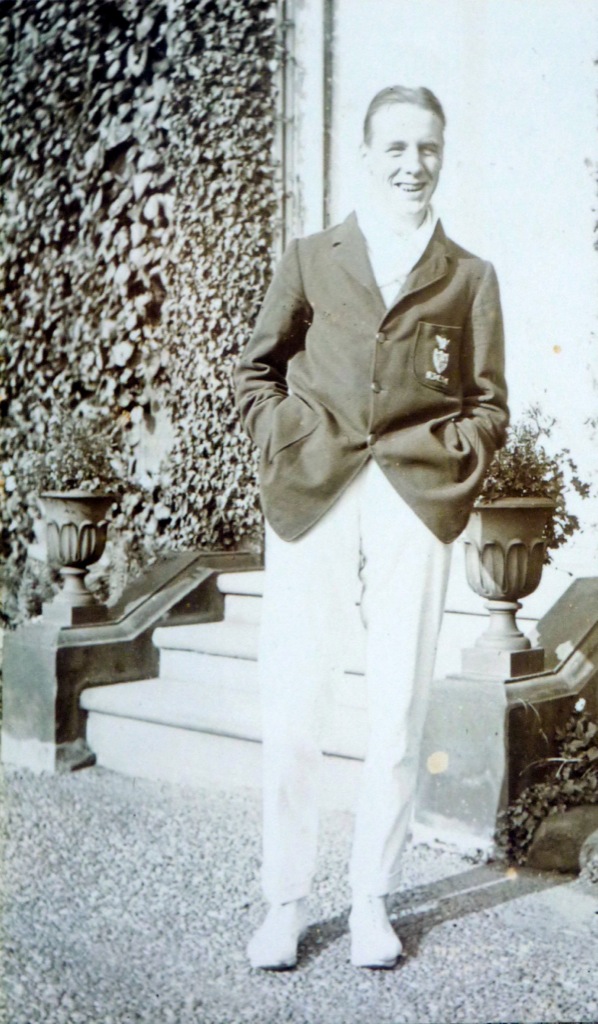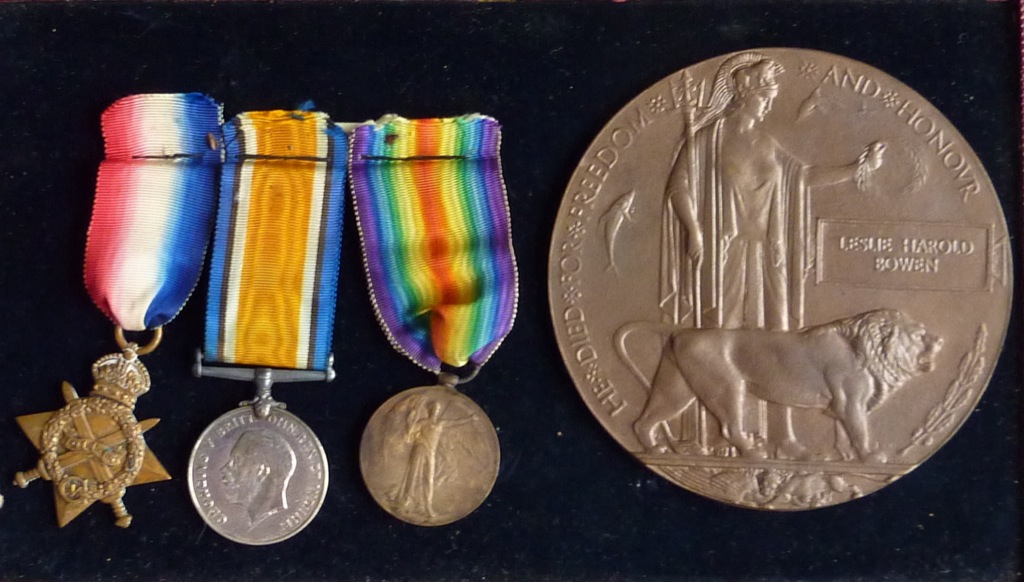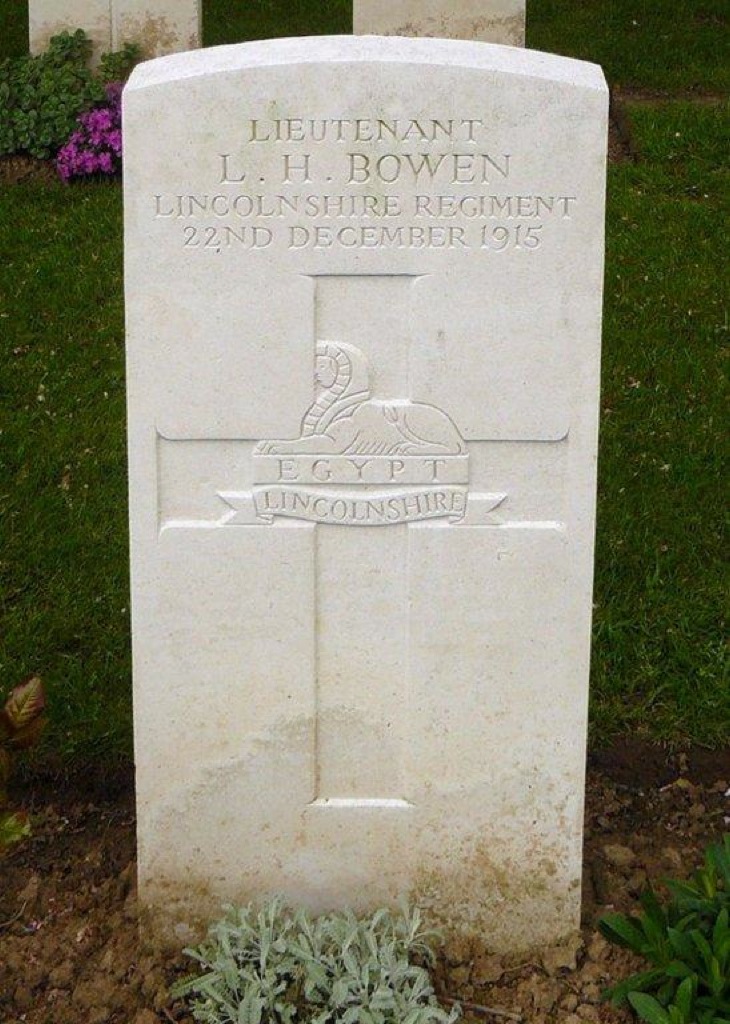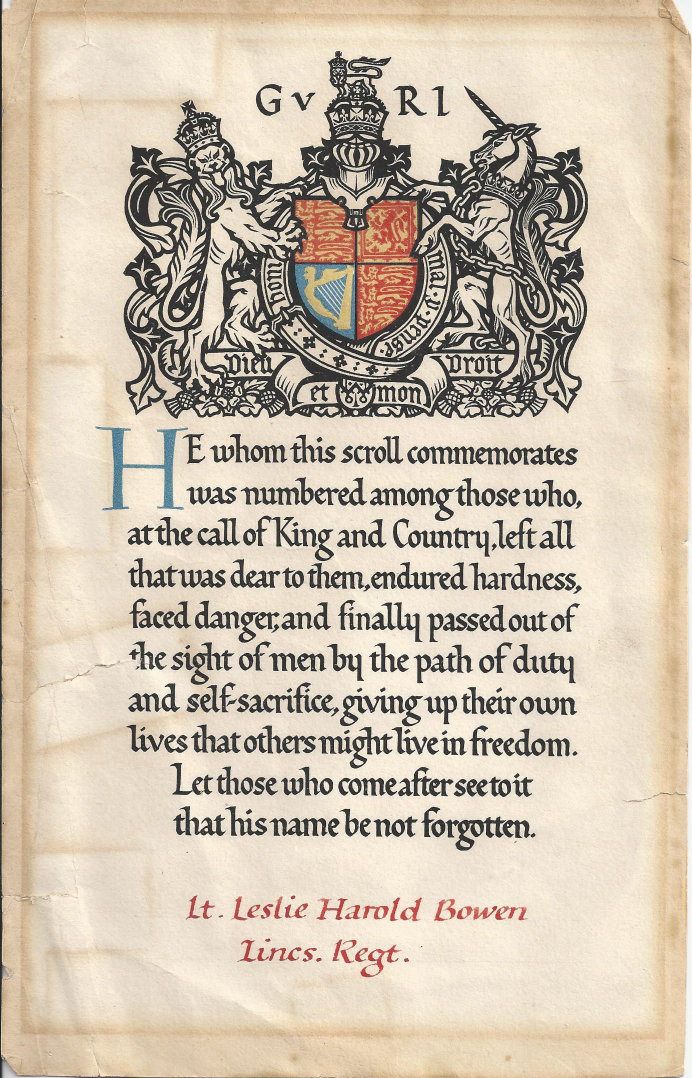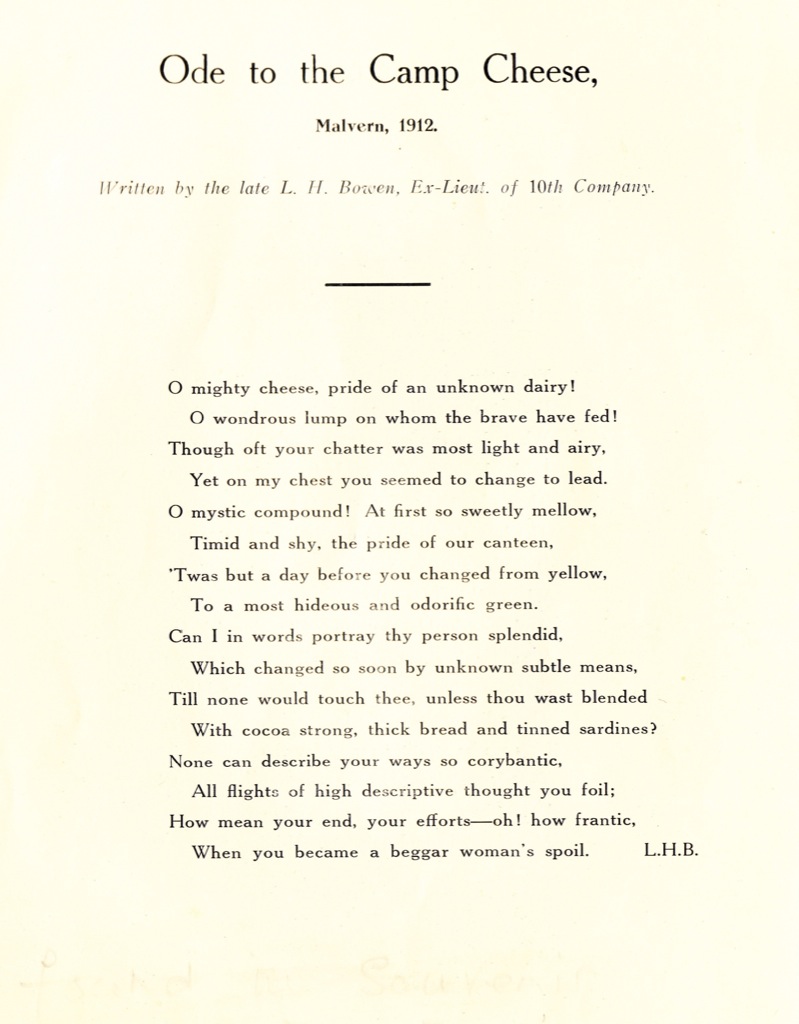Leslie Harold Bowen, born on 3rd November 1888, was the ninth child of John and Catherine and lived with the family at ‘Rochford’, Strensham Road, Moseley. Leslie’s father is described in the School Admissions Register as a builder. This is somewhat of an understatement given that his company, John Bowen & Sons, was responsible for building many important Birmingham landmarks, most notably the Victoria Law Courts, and for which he was awarded a Blue Plaque in September 2014, the first such award in Balsall Heath.
Leslie was admitted to King Edward’s School in January 1900. There is little in the School records about his time at King Edward’s, but we do know that in September 1903 he went onto Queen’s College, Taunton. The Queen’s College school magazine reports that Leslie played both cricket and rugby, and participated in the debating society, which was forward thinking enough to debate whether or not a Channel tunnel would prove beneficial to the Country!
In October 1907 Leslie went up to St John’s College, Cambridge to read Law and was later articled to train as a solicitor with the Birmingham firm of Ryland, Martineau and Carslake. He joined Sharp & Co. for his final exams, which he passed in June 1913.
In 1914, Leslie, with an old St John’s friend, enlisted as a Corporal in the 9th Battalion, Queen Victoria’s Own (City of London) Regiment, and was gazetted as a Lieutenant to the Lincolnshire Regiment the year after. In June 1915 he wrote: “I am off tomorrow for Southampton en route for France. I am glad to go now, I have had the best time of my life in camp here”.
Leslie was killed whilst on patrol duty in the early morning of 22nd December 1915, only days after receiving his commission, aged twenty-seven. His Colonel wrote to his parents: “I deeply regret to inform you that your son…was approaching the German wire about ten yards in front of other members of the patrol when he was hit and seen to fall. Owing to the enemy’s fire it was impossible to approach the spot where he fell, and his body has unfortunately not been recovered. The Corporal who was accompanying him feels sure that he was killed outright, but of course there is a faint chance of his being still alive, but I fear the chance is remote…he was a keen and zealous officer and very popular among his comrades.”
An undated letter from the War Office to John Bowen received on 8th April 1919 states that Leslie’s body was located and buried in Lomme Communal Cemetery, but was later moved to Cabaret-Rouge Cemetery, Arras.
It is gratifying that Leslie Bowen’s name appears on several war memorials including King Edward’s School, Queen’s College Taunton, St John’s College Chapel, Cambridge, the Law Society, Chancery Lane and the Lincolnshire Regimental Scroll. Finally, St Anne’s Church in Moseley also lists Leslie as one of the thirty three members of the church never to return home. In memory of his son, John Bowen bequeathed £1,250 to provide a bed at the General Hospital, Steelhouse Lane (now the Children’s Hospital). In spite of this being a substantial gift in those days there is sadly no record of it today.
John Bowen & Sons Ltd., together with John Barnsley (OE) built the Hall of Memory in Birmingham to honour the city’s war dead, which survives as a more permanent memorial.
Leslie’s brother Thomas (OE) also served, becoming a prisoner of war in 1918.

